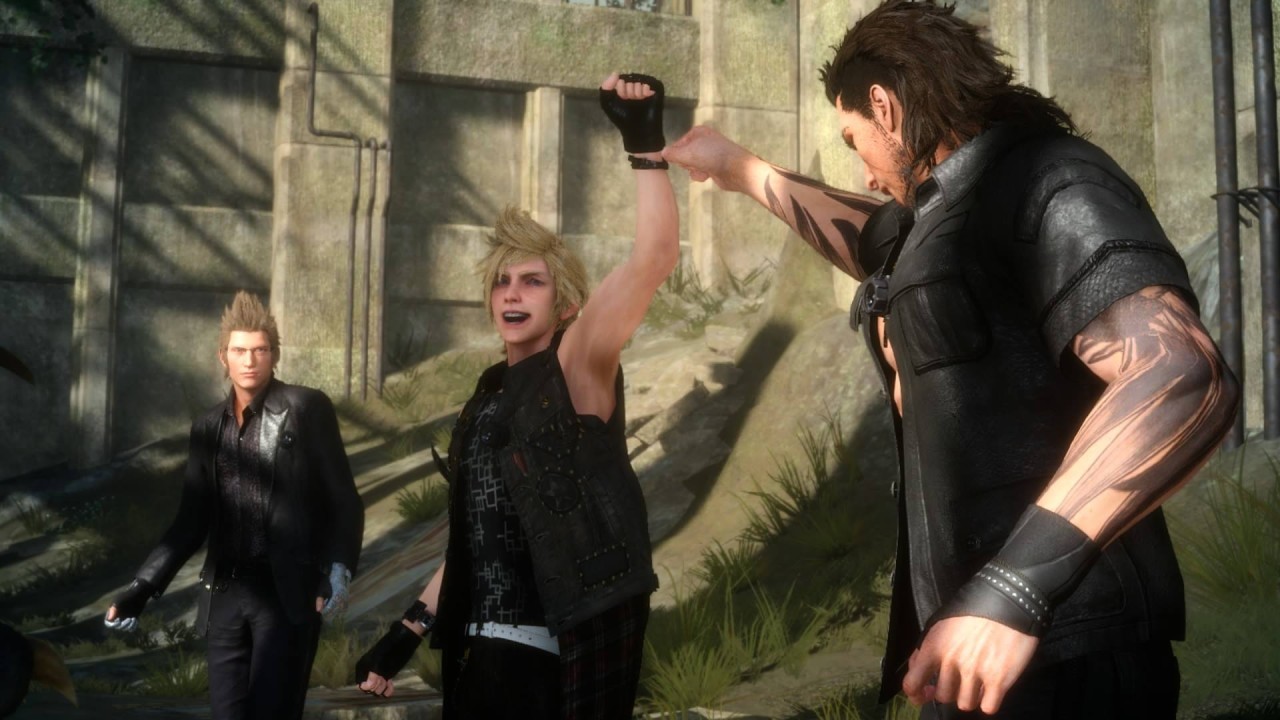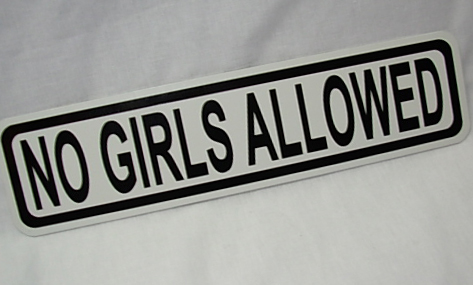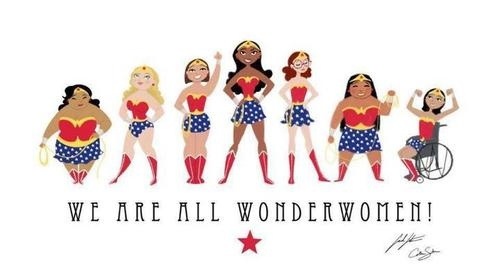The trope of the disguised female is problematic because it reinforces the idea that male or non-female entities are more capable than female bodied characters. Both Ocarina of Time and Fantasy Life feature female characters who disguise themselves as men. Laura (Fantasy Life) and Zelda (Ocarina), princesses of their own respective realms, participate in traditionally male activities such as adventuring and rescuing when masquerading as men. This removal of femaleness allows for more agency and freedom.
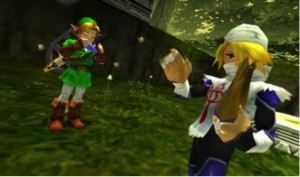 In Ocarina of Time, Zelda disguises herself as the slim-bodied Sheik from the Sheikah clan. Her ninja-like abilities are nothing short of impressive–the Hyrulian Princess can jump from great heights and vanish in a ball of smoke at a moment’s notice. However, she’s incapable of such physical feats when dressed in her Princess getup. In her female form, Zelda can open doors with magic but she can longer move with the same ease and skill. Her magical abilities are non-combative. Even the ending blow, a truly epic and satisfying instance, is reserved for the male protagonist. This reduction of women to the role of physically weaker magic users is prevalent in role playing games, especially in the Final Fantasy series, so it isn’t surprising to see it here, except we know Zelda is capable of more.
In Ocarina of Time, Zelda disguises herself as the slim-bodied Sheik from the Sheikah clan. Her ninja-like abilities are nothing short of impressive–the Hyrulian Princess can jump from great heights and vanish in a ball of smoke at a moment’s notice. However, she’s incapable of such physical feats when dressed in her Princess getup. In her female form, Zelda can open doors with magic but she can longer move with the same ease and skill. Her magical abilities are non-combative. Even the ending blow, a truly epic and satisfying instance, is reserved for the male protagonist. This reduction of women to the role of physically weaker magic users is prevalent in role playing games, especially in the Final Fantasy series, so it isn’t surprising to see it here, except we know Zelda is capable of more.
Zelda spent seven years disguised as a male Sheikah. During that period of time she rescued Princess Ruto from a thick sheet of ice, taught Link valuable teleportation songs, and successfully evaded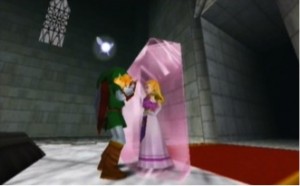 Gannondorf. As far as we’re aware, she needed no rescuing. What other untold adventures has she had? Where’s that game? Minutes after revealing her true identity to Link, Gannondorf imprisons her in a pink crystal. Zelda reverts. She goes from being an active character with complex experiences to a mere prize or token. The very crystal that confines her resembles a jewel on a necklace. She is reduced again to a princess, and a female body is on display, an object to be won or gazed upon. Her femaleness needs to be stripped in order for her to participate in non-princess activities.
Gannondorf. As far as we’re aware, she needed no rescuing. What other untold adventures has she had? Where’s that game? Minutes after revealing her true identity to Link, Gannondorf imprisons her in a pink crystal. Zelda reverts. She goes from being an active character with complex experiences to a mere prize or token. The very crystal that confines her resembles a jewel on a necklace. She is reduced again to a princess, and a female body is on display, an object to be won or gazed upon. Her femaleness needs to be stripped in order for her to participate in non-princess activities.
Like Zelda, Princess Laura from Fantasy Life dons her male disguise when partaking in stereotypically male, outdoorsy activities such as exploring and fighting. Consider space and gender for a moment. Indoor spaces tend to be associated with the domestic. These private spaces are where women traditionally operate, and Laura can only be female when she’s inside the castle.
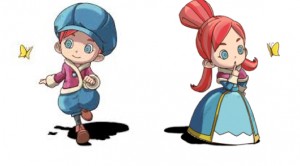 This indoor space is both restrictive and suffocating. It’s not a warm and comfortable space for female-bodied characters to be active agents. King Erik, her pint sized father, locks her in her bedroom to prevent her from going on adventures. Laura has to give up her femaleness to be free of his patriarchal oppression. Though he later permits her to go out and explore Reveria, she still opts to wear her boy clothes. Perhaps Laura’s male disguise stands as a symbol of her rebellion against the tightly monitored culture and society she was born into.
This indoor space is both restrictive and suffocating. It’s not a warm and comfortable space for female-bodied characters to be active agents. King Erik, her pint sized father, locks her in her bedroom to prevent her from going on adventures. Laura has to give up her femaleness to be free of his patriarchal oppression. Though he later permits her to go out and explore Reveria, she still opts to wear her boy clothes. Perhaps Laura’s male disguise stands as a symbol of her rebellion against the tightly monitored culture and society she was born into.
Prior to Laura’s reveal, she chooses the name Girboy when dressed in male garments. This moniker is not male or female, but somewhere in between. Laura’s chosen nickname got me thinking about other forms of disguise, specifically non-female forms. In Twilight Princess, Midna is transformed into an imp-like creature. Unlike Laura and Zelda, both of whom chose their disguises, Midna’s disguise was forced upon her.
Midna’s femaleness was taken from her by Zant, the game’s villain. When she was unable to lead her people in the twilight realm, Zant transformed her into a genderless creature as a form of 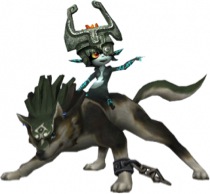 punishment, but this disguise does allow Midna to have a more intimate relationship with Link. Small and lightweight, she’s able to ride on his back when he’s a wolf. This literal riding of Link implies a kind of sexual relationship where she holds dominance. Throughout the length of the game, Midna remains flirtatious with Link. She frequently instructs Link on what to do, how to act, where to go, and so on, but when she gains back her femaleness, that closeness with Link dissolves.
punishment, but this disguise does allow Midna to have a more intimate relationship with Link. Small and lightweight, she’s able to ride on his back when he’s a wolf. This literal riding of Link implies a kind of sexual relationship where she holds dominance. Throughout the length of the game, Midna remains flirtatious with Link. She frequently instructs Link on what to do, how to act, where to go, and so on, but when she gains back her femaleness, that closeness with Link dissolves.
Midna, a wonderfully devious character who’s very much her own agent in her imp form, reverts back to the princess stereotype when her femaleness returns. At the end of the game she stops herself from telling Link that she loves him. She censors herself, bottling up her feelings. Midna’s more coquettish and delicate in this form. There’s no sass. There’s no fire. She no longer has the freedom to express herself and her sexuality.
Ideally, I’d like to see more female characters who act upon their desires AS females. Too often female characters end up becoming tropes or clichés. We need women who are not weak. Who are not reserved. Who don’t require a hero’s intervention. Female characters should be able to have the freedom to swing a sword, kiss a boy (or girl!), and kick ass.

